One in three Americans have some type of criminal record. Even a minor criminal record can present lifetime barriers to obtaining jobs, housing, and education, and put other opportunities out of reach. The barriers associated with a record can have ripple effects for generations. That’s why Sponsors partnered with more than 25 like-minded organizations to advance automated expungement legislation across the country.
Clean slate policy is a type of criminal justice reform that promotes equity in reentry. As it is, states already allow for certain criminal records to be sealed or expunged after a set period time without reoffending. But under the current petition-based system, only a tiny fraction of eligible individuals get their records cleared. The process is expensive and time consuming, usually requiring hiring lawyers, taking time off work, and paying thousands of dollars in legal fees.
Clean slate streamlines the process, making record-clearing automatic once someone has remained crime-free for a set period of time. Through clean slate, states automatically seal or expunge eligible records by computer query, meaning that everyone who qualifies gets the clean slate they’ve earned—regardless of whether or not they can afford a lawyer, legal fees and the time to navigate the complex petition process.
Clean Slate Policy gives justice-involved people and their families a fair chance to earn a decent living, obtain stable
housing, and access the education and training
they need to get ahead. By eliminating the petition system, it reduces the workload of the criminal justice system. We know recidivism decreases when we smooth out the reentry process, thus reducing reliance on taxpayer dollars and increasing community safety. Furthermore, the economy grows as more qualified job seekers are able to re-enter the labor force.
That’s why states across the country are taking action to enact clean slate policies, which have the potential to transform tens of millions of lives by helping folks with conviction histories get the second chance they deserve. And at a time when it seems Americans can’t agree on anything, Clean Slate has rare bipartisan support, with 70 percent of Americans, across party lines, in favor of the policy.
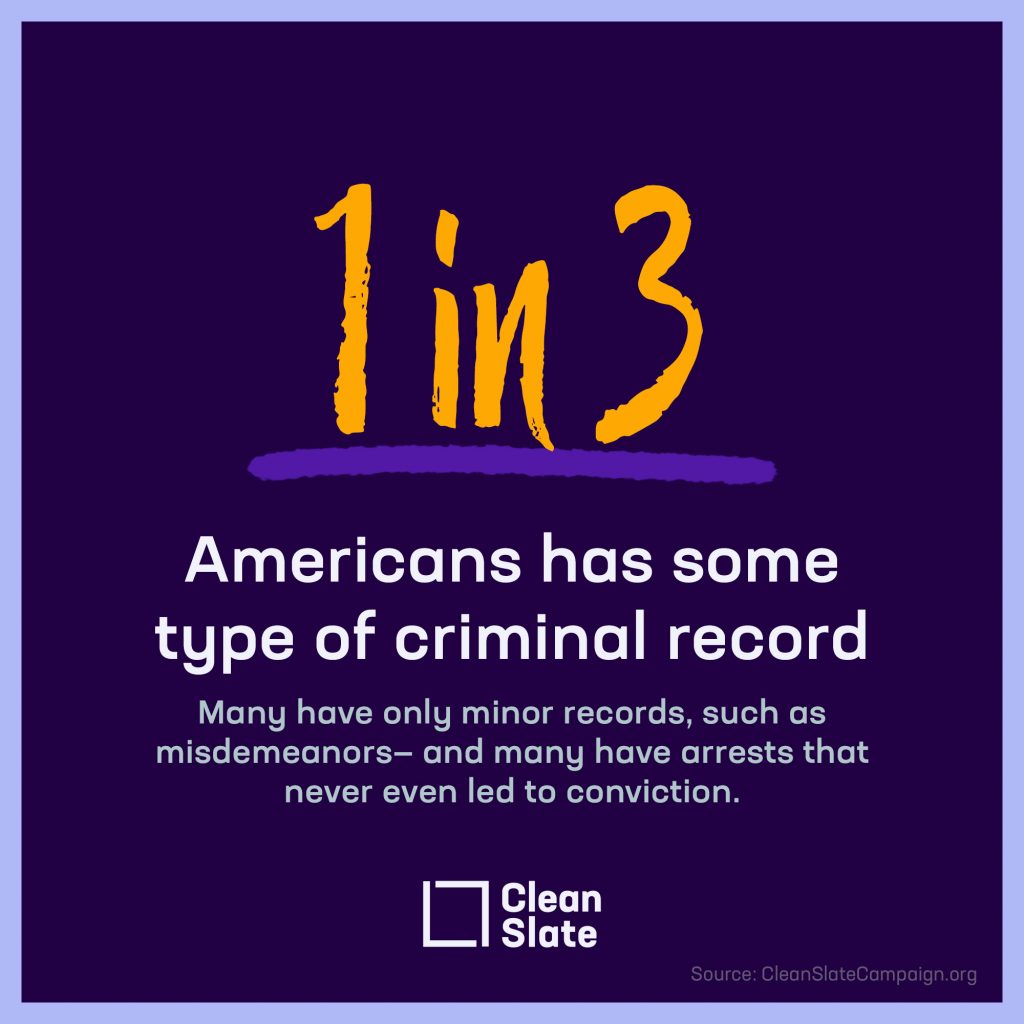
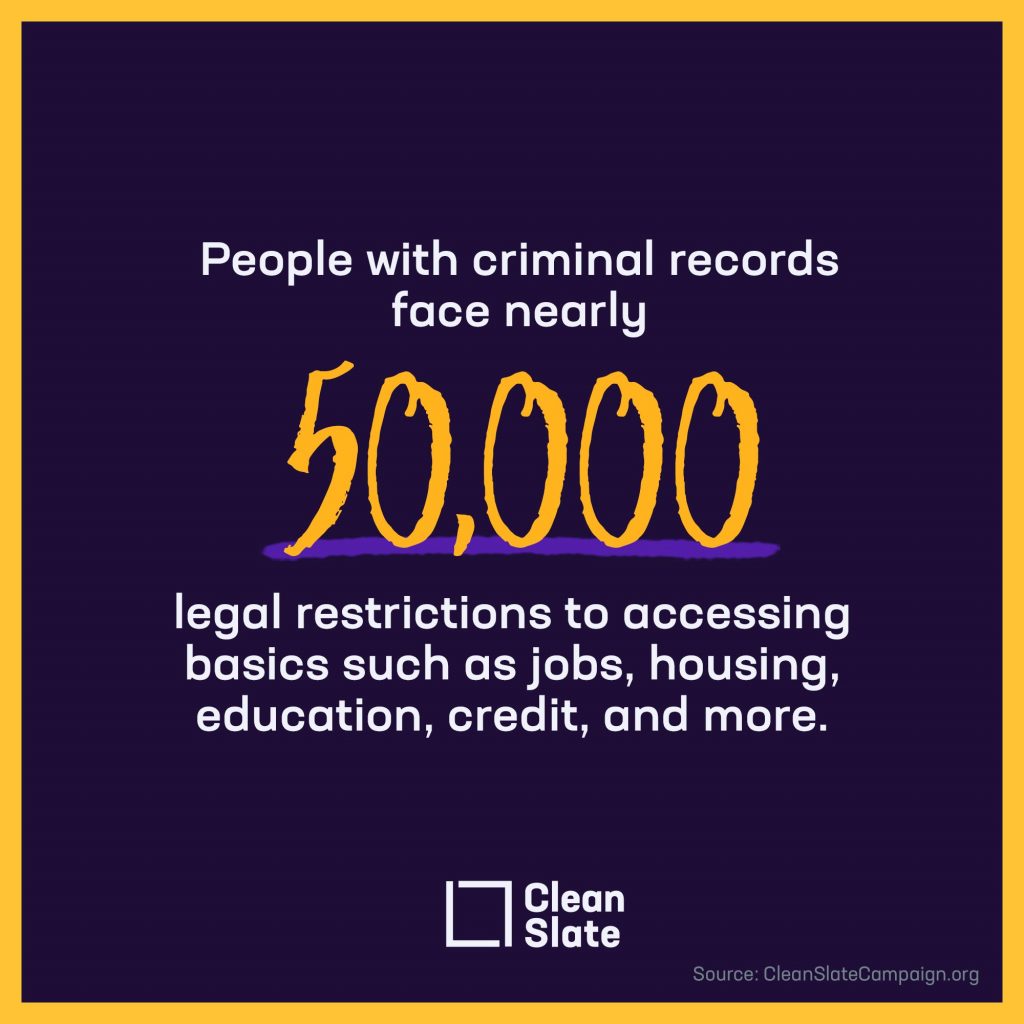
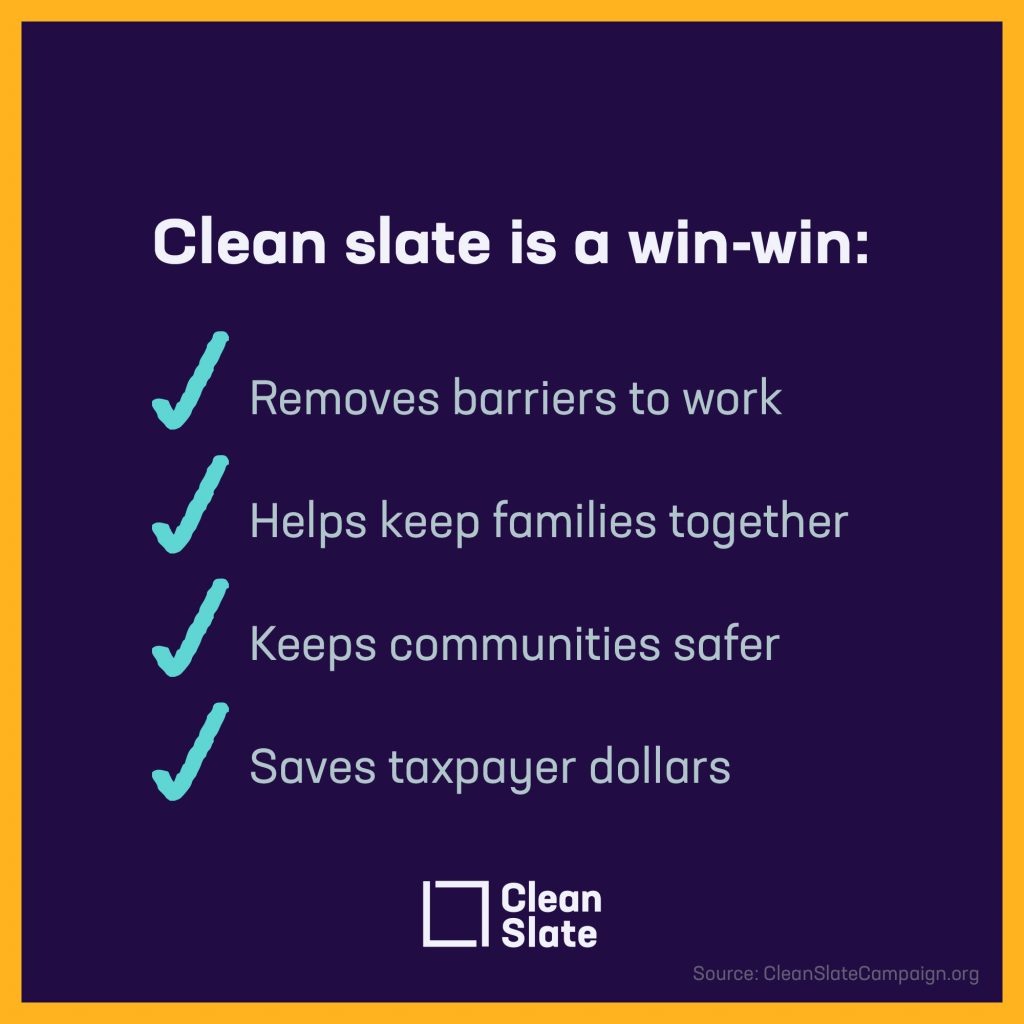
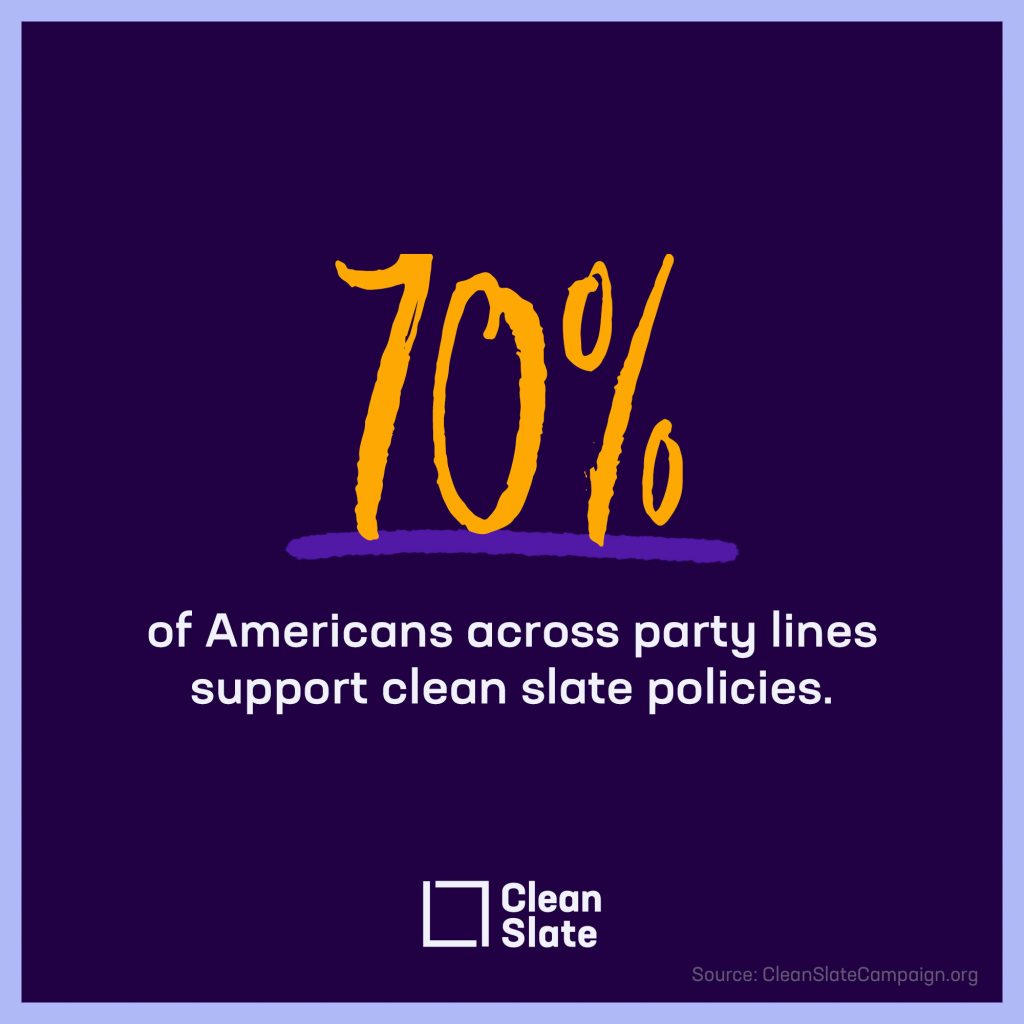

Following the rise of protests for racial justice, Gov. Kate Brown created the Racial Justice Council, a group of experts convened to create a racial justice action plan for six specific areas: Criminal Justice Reform and Police Accountability, Housing and Homelessness, Economic Opportunity, Health Equity, Environmental Equity, Education Recovery.
Sponsors Executive Director, Paul Solomon, serves as co-chair for the Criminal Justice Reform & Police Accountability Committee alongside Lamar Wise.
Listen to their interview with OPB’s Think Out Loud from Spring 2021.
“The Black Lives Matter movement and the deaths of George Floyd and other innocent Blacks have shined a light on systemic inequities that have festered for years in our public safety systems.”
-Paul Solomon, Sponsors Executive Director
“We want to make sure in the same sense as restorative justice that we are creating a human centered approach to accountability.”
-Lamar Wise, Political Coordinator AFSCME
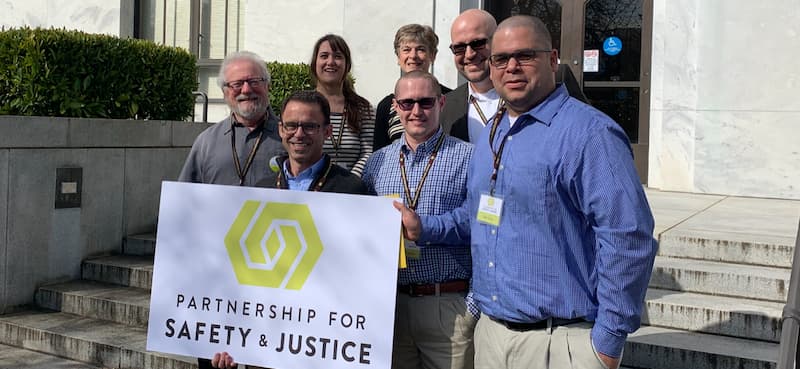
As an organization, we are committed to social justice. We stand against mass incarceration and over criminalization. With our partners, we are working to advance prison reform, combat systemic racism, and reduce barriers to successful reentry. We are thought leaders, activists, and allies. If you share our vision of a more just system, we encourage you to join us in our legislative efforts.
The following bills represent a small handful of the criminal justice reform, police accountability and anti-racist legislation Sponsors supported in the 2021 Legislative Session.
Bill implements the Governor’s Police Training and Standard Taskforce’s recommendations that law enforcement agencies become accredited, increases equity training requirements for new and more experienced officers, boost the number of community members on the Board on Public Safety and Training, and expand DPSST’s investigative capabilities.
Police agencies cannot obtain specified military surplus equipment from the federal government including: unmanned armored or weaponized aircraft, grenades, grenade launchers, and silencers. City councils and county boards may approve other non-prohibited federal surplus equipment purchases.
DPSST required to investigate the backgrounds of officer recruits at basic police officer course, to determine if the recruits have previously participated in hate groups, racial supremacy organizations or militant groups. Law enforcement agencies required to set standards for speech and expression by officer on and off duty.
SB 621
Allows the establishment of civilian oversight board approved by a majority of voters in city or county, even if it conflicts with existing collective bargaining statutes. Allows Portland’s new civilian oversight board approved by voters in 2020 election to proceed even though it has not bargained with the Portland Police Association.
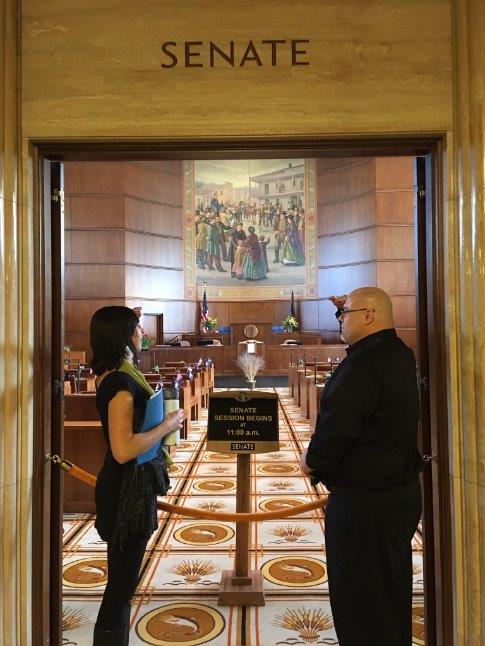
There are so many ways to do your part to advance prison reform. Contact your local legislators, and tell them you believe in Second chances. Write letters to newspapers, blogs or social media groups to keep your circle informed about the state of our criminal justice system. Keep the dialogue going! Talk to your friends and family members about the damaging effects of overcriminalization and mass incarceration. Together, we can transform more than just lives. We can build a safer, healthier, and more just community.
Stay tuned for more information and opportunities to join our efforts as we learn more about the upcoming 2022 Legislative Session.
Join our mailing list to stay up-to-date on current legislative efforts and ways to participate in local campaigns for social justice.
Visit our Get Involved page to learn more about ways to support Sponsors and our mission to transform lives!
fax: 541.683.6196
Copyright 2025 © Sponsors, Inc.
